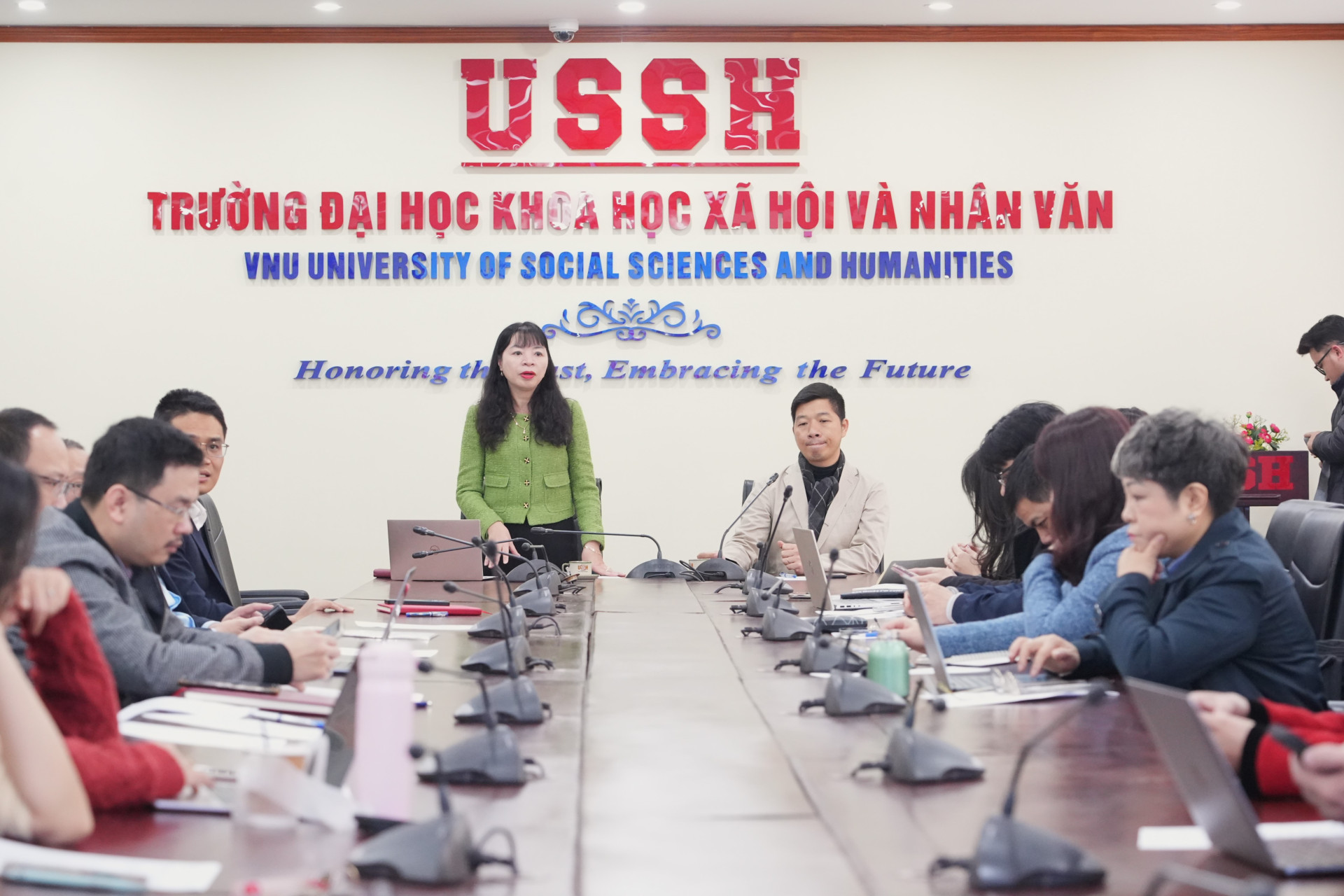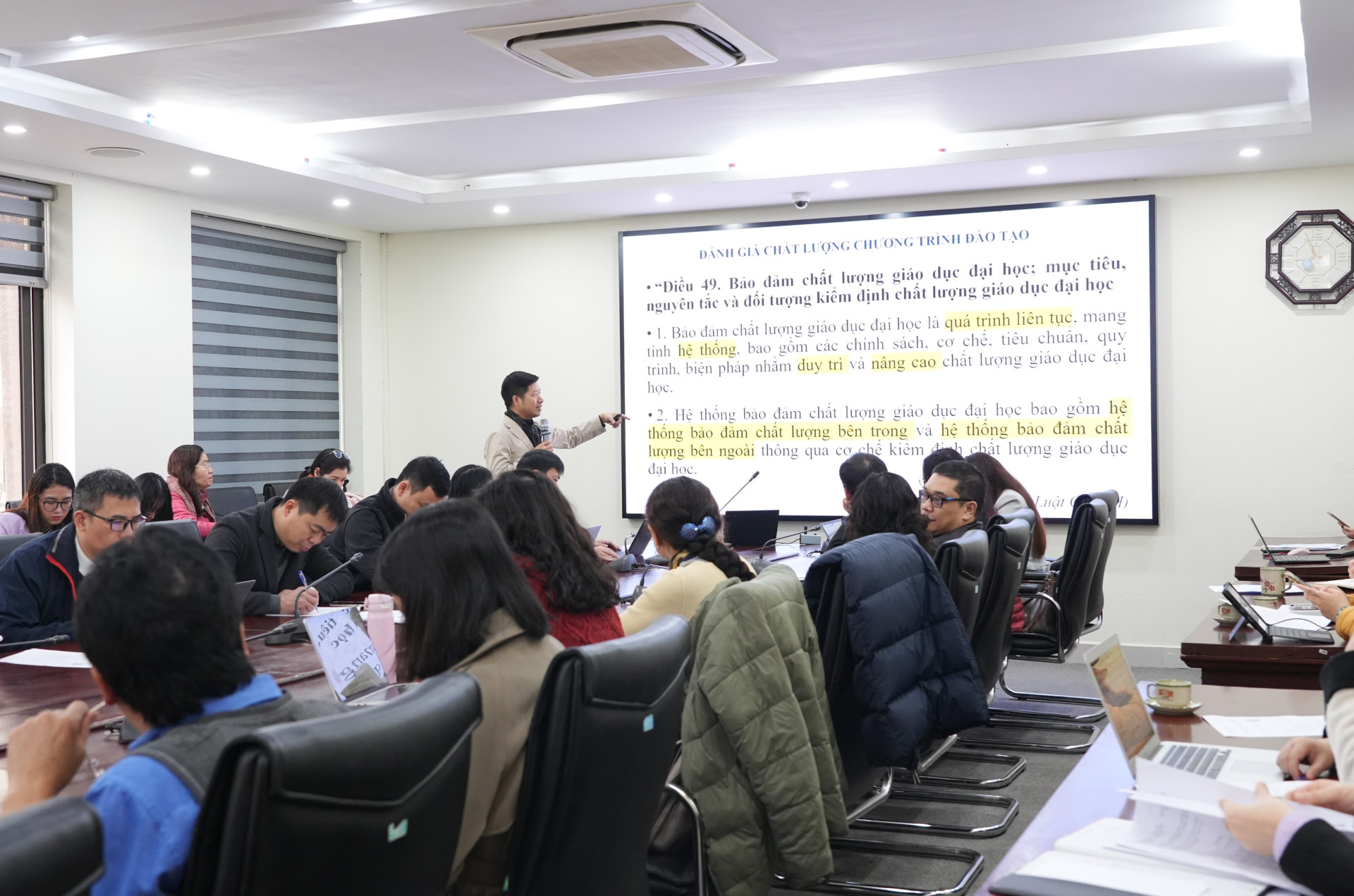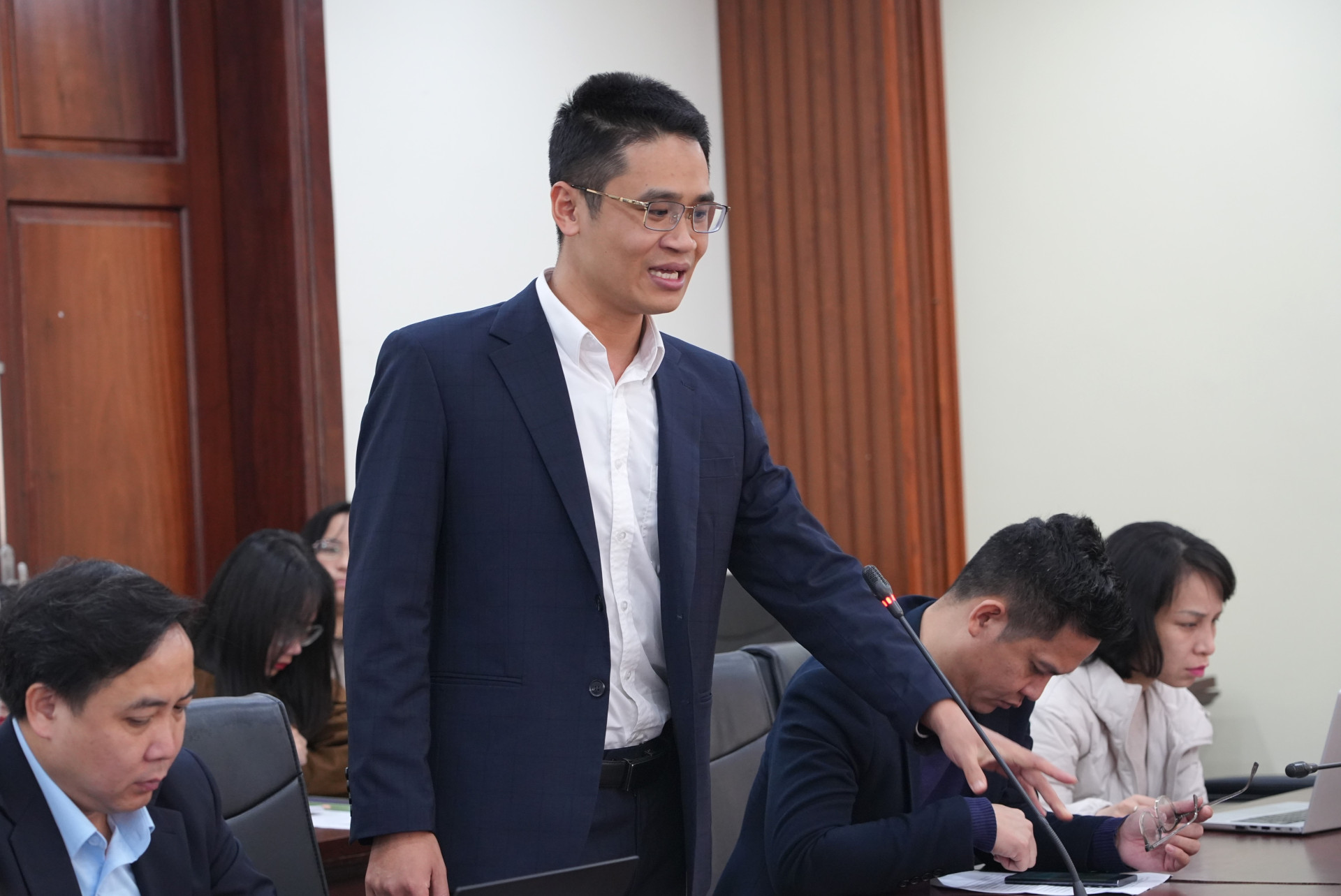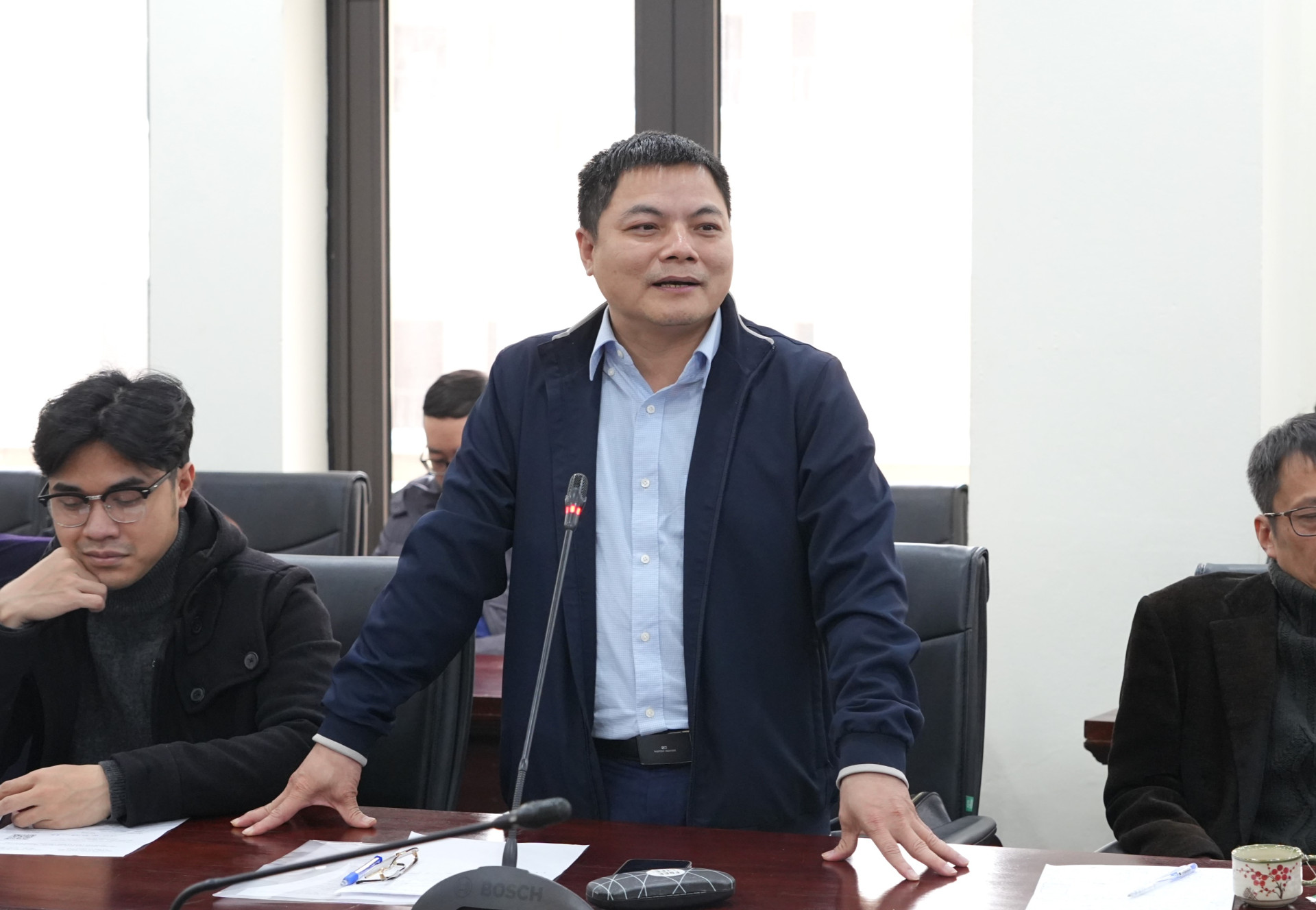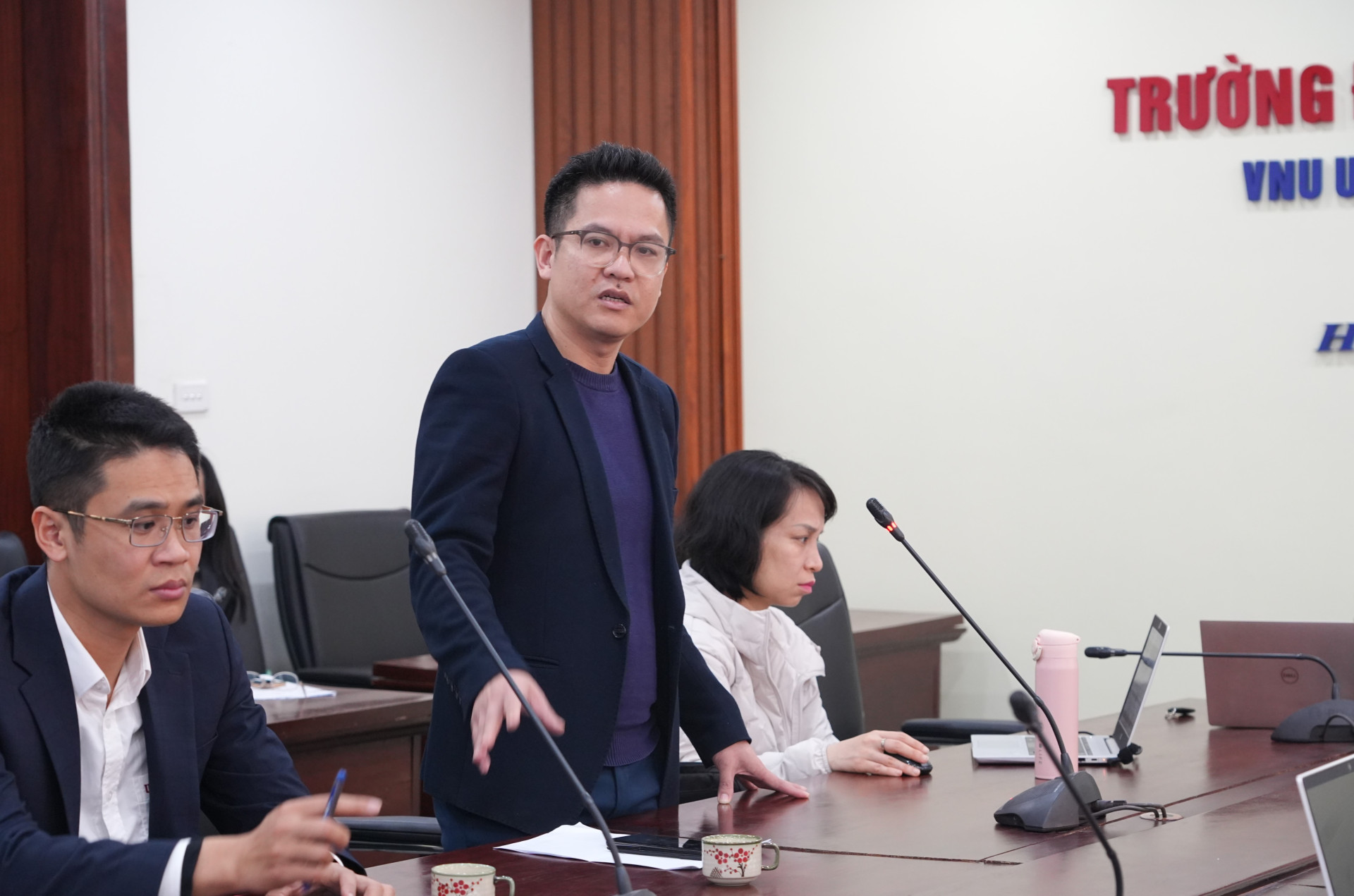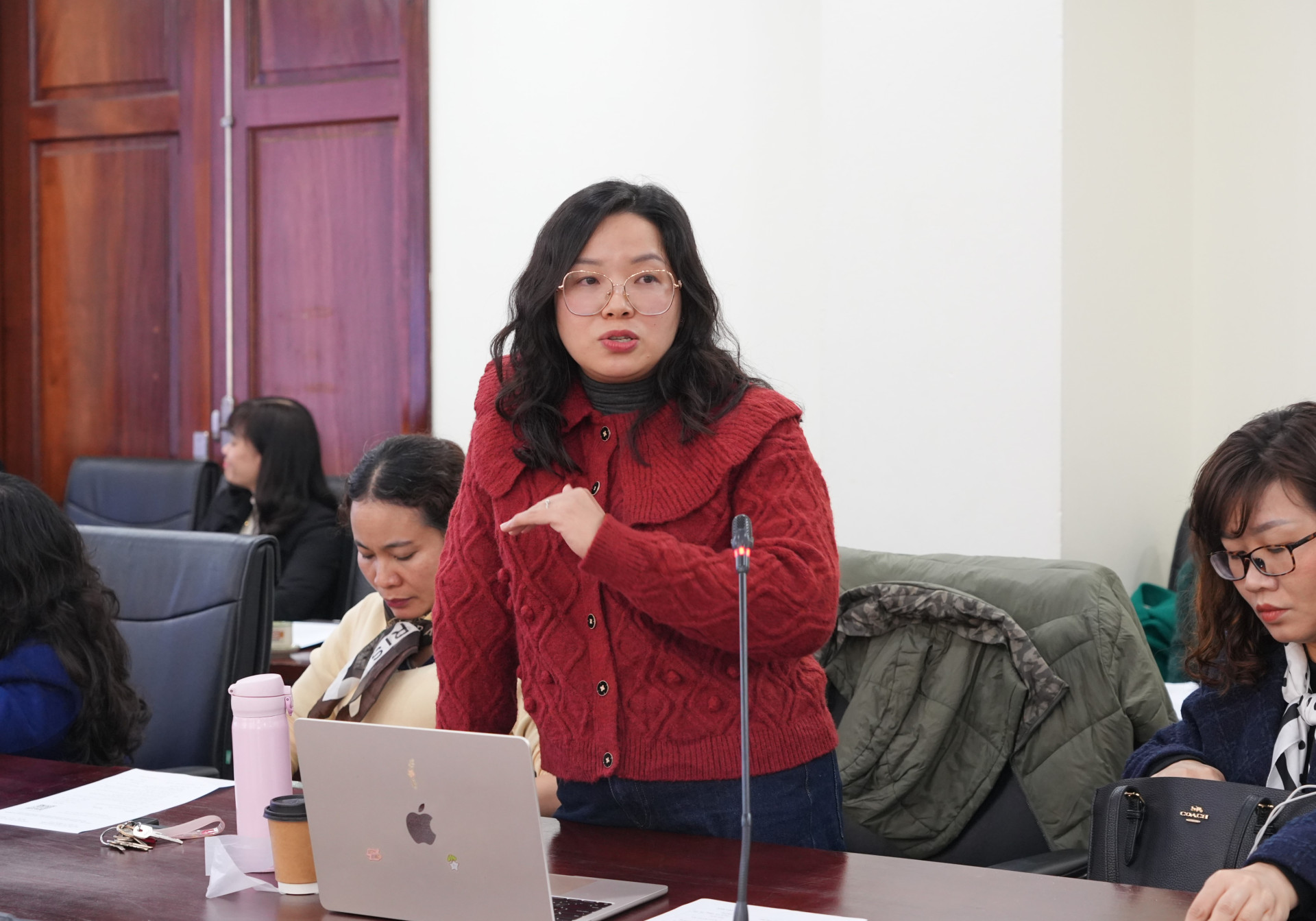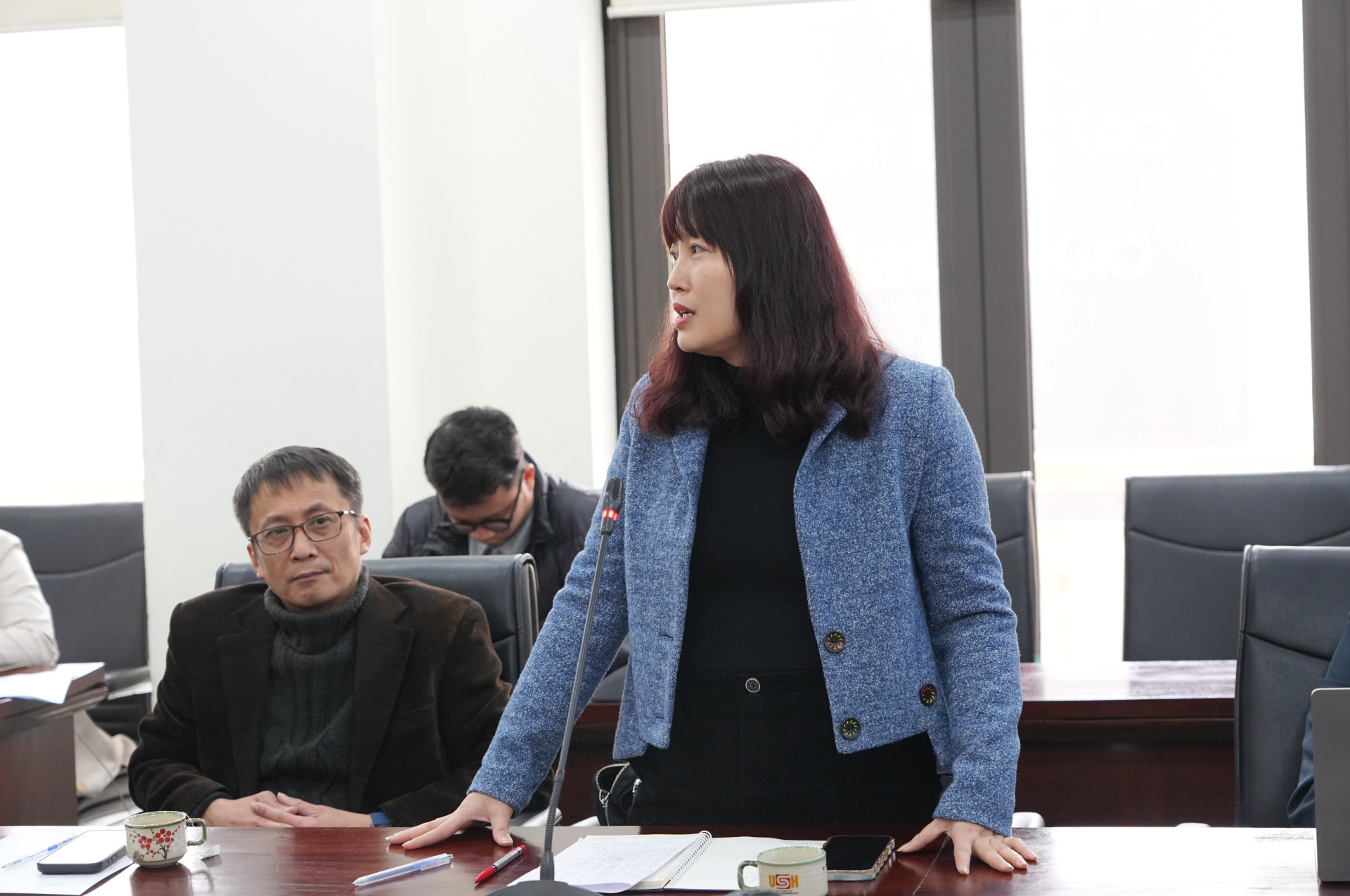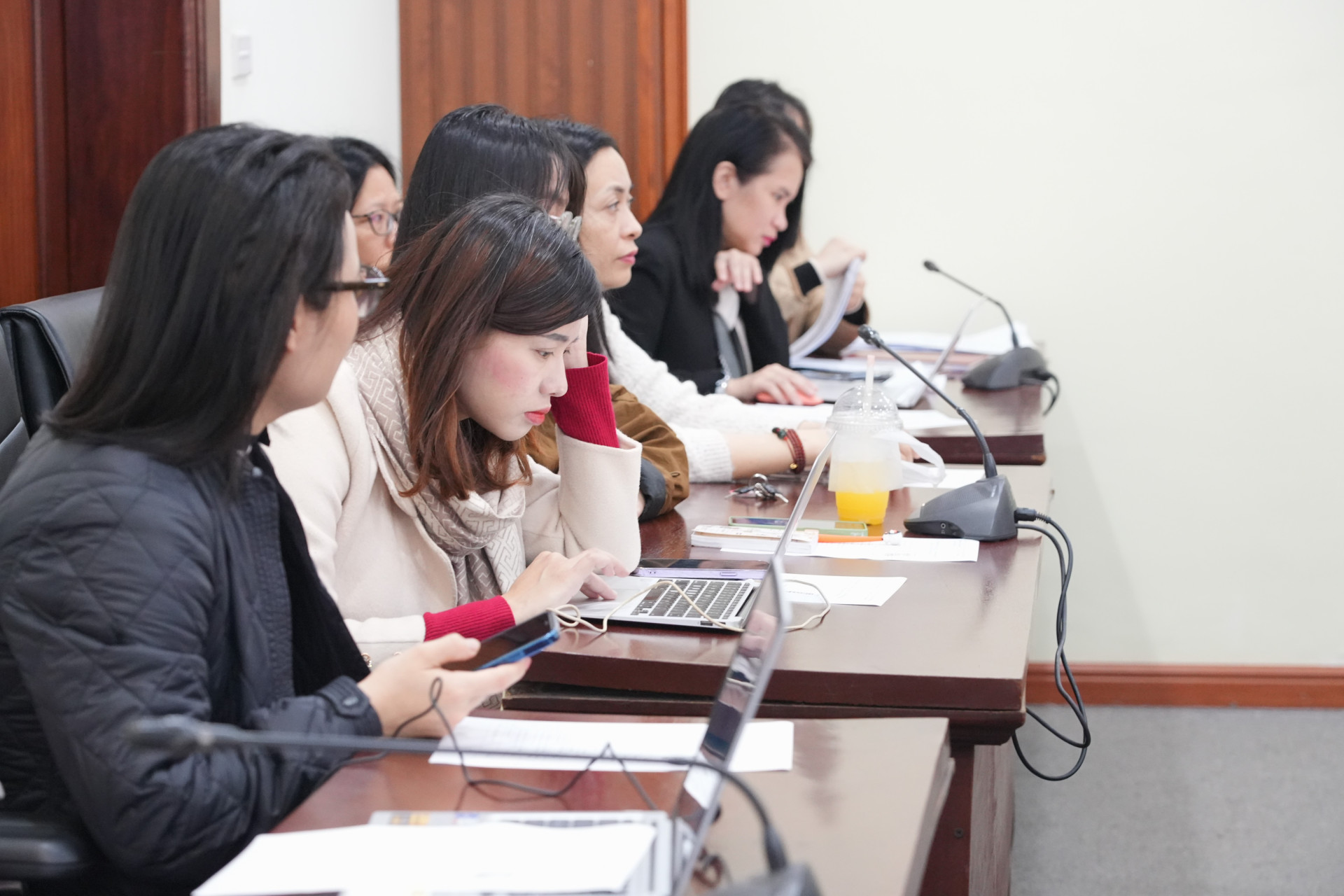The seminar was attended by representatives from the school's Board of Directors; representatives from the leadership, training assistants, and quality assurance assistants of the faculties, institutes, and departments; representatives from the leadership and specialists in charge of quality assurance work of the functional departments and centers; specialists in charge of curriculum development in the Training Department; and staff assigned by their units to participate in the evaluation of the quality of training programs in 2024, 2025, and 2026.
This forum aims to discuss and exchange experiences in self-assessing quality and improving the quality of training programs according to the quality assessment standards of the Ministry of Education and Training and the ASEAN University Network Quality Assurance (AUN-QA).
Associate Professor Dr. Dang Thi Thu Huong - Vice Rector of the University of Social Sciences and Humanities, chaired the seminar.
In her opening remarks at the seminar, Assoc. Prof. Dr. Dang Thi Thu Huong - Vice Rector of the University of Social Sciences and Humanities - emphasized that current regulations and circulars on quality assurance have many new points compared to 2024. Therefore, the implementation of quality assessment and accreditation of training programs in 2025 needs to quickly adapt to these new regulations. Units conducting accreditation activities need to approach the evaluation of training programs in a substantive manner, flexibly incorporating the contributions of the external evaluation council to adjust the training programs in the most practical and effective way.
In 2025, the University of Social Sciences and Humanities plans to conduct external evaluations of 6 training programs that completed self-assessment in 2024 (including 3 undergraduate and 3 master's programs) and continue the quality accreditation process for 5 training programs, including 2 programs according to the AUN-QA standards and 3 programs according to the standards of the Ministry of Education and Training. Therefore, the educational quality assurance system needs to be further improved through investment in resources for reviewing and continuously improving the quality of training programs, focusing on the shortcomings identified from the self-assessment and external evaluation results.
Dr. Pham Huy Cuong - Director of the Center for Educational Quality Assurance
In his presentation on "Quality Assessment & Improvement of Training Programs," Dr. Pham Huy Cuong, Director of the Center for Educational Quality Assurance at the University of Social Sciences and Humanities, stated that ensuring the quality of higher education is a continuous, systematic process encompassing policies, mechanisms, standards, procedures, and measures aimed at maintaining and improving the quality of higher education.
Providing the latest information on regulations and guidelines for evaluating the quality of training programs, Dr. Pham Huy Cuong stated that units need to pay attention to several important changes in Circular 04/2025 on the accreditation of training programs at all levels of higher education. Notably, it has identified 10 criteria (mandatory requirements for training programs) focusing on clarifying and demonstrating the current output-based approach of higher education in Vietnam. The Circular emphasizes the practical need for further attention and investment in improving the quality of training programs within the university.
The Director of the Center for Educational Quality Assurance also shared the self-assessment process for training program quality, the basic steps to complete the self-assessment report and prepare for external evaluation; the Ministry of Education and Training's standards for comparison between Circular 04/2016 and Circular 04/2025; the AUN-QA standards, etc.
To continuously improve quality, training units need to pay attention to the criteria and conditions in Circular 04/2025, such as: The learning outcomes (LOs) of the training program must be consistent with the Vietnam National Standard Framework, including general and specific LOs; the contribution of each course module to achieving the LOs of the training program must be clear; the methods of evaluating learning outcomes must ensure the measurement of the level of achievement of the LOs of each course module and the LOs of the training program… The role of lecturers, department heads, and faculty leaders is very important in ensuring the quality of training programs, including the implementation of quality accreditation of training programs.
At the seminar, leaders and quality assurance assistants from faculties/institutes/departments and functional offices shared many opinions and suggestions to ensure that quality assurance activities in education at the University of Social Sciences and Humanities in 2025 are implemented in the most effective way.
Dr. Pham Van Hue - Deputy Head of the Training Department, reported on the results of improvements and enhancements in the quality of training management activities.
According to Dr. Pham Van Hue, Deputy Head of the Training Department, in 2024, the university implemented many activities to improve and enhance the quality of training management in the spirit of "standards" and "quality". These included adjusting 28 undergraduate programs; adjusting 35 master's programs and 29 doctoral programs; opening one new bachelor's program and one new doctoral program; and successfully completing the acceptance process at the Vietnam National University, Hanoi level for two new master's programs and one new doctoral program.
Sharing experiences on adjusting training programs based on the results of training quality accreditation, Assoc. Prof. Dr. Nguyen Van Luot - Deputy Head of the Faculty of Psychology, emphasized that accreditation helps units improve their training programs more effectively. After accreditation, units need to review and improve the issues recommended by the evaluation council, such as expected learning outcomes, program structure and content, teaching and learning methods, student assessment methods, support and improvement of faculty quality, etc.
Associate Professor Dr. Nguyen Van Luot - Deputy Head of the Psychology Department, shared his experience on adjusting the curriculum based on the results of the training quality accreditation.
Dr. Nguyen Hong Duy - Deputy Head of the Department of Archival Studies and Office Management - highly appreciated the significance of the seminar in providing information and exchanging experiences with other units, especially in the context of many training programs being reviewed and preparing criteria for accreditation. The accreditation of training programs has been closely linked to the actual training practices at the university. Proposing solutions to improve the quality of teaching and learning according to the learning outcomes, Dr. Nguyen Hong Duy emphasized five solutions, including: Improving the training program; Enhancing the professional management role of each department; Strengthening cooperation with agencies and organizations in increasing internship and practical activities for students; Innovating teaching methods; and Improving the method of evaluating learners.
Dr. Nguyen Hong Duy - Deputy Head of the Department of Archival Studies and Office Management
Dr. Nguyen Thi Kim Nhung - Deputy Head of the Sociology Department, shared her experience in implementing training activities and quality assurance of training programs at the Sociology Department.
Dr. Nguyen Thi Thu Huong - Deputy Head of the Faculty of Oriental Studies - proposed several recommendations to improve the quality of accreditation of training programs.
A culture of quality is a key element for educational institutions, especially those with a leading mission like the University of Social Sciences and Humanities (VNU-USSH). Over the years, the university has organized numerous quality assurance and accreditation activities to sustainably improve the quality of education. By 2024, VNU-USSH had completed the accreditation of 100% of its eligible undergraduate programs. These are remarkable figures, demonstrating the continuous efforts to improve the quality of education and strengthen the position and prestige of the University of Social Sciences and Humanities in particular, and VNU-USSH in general, within the national and regional higher education system.
